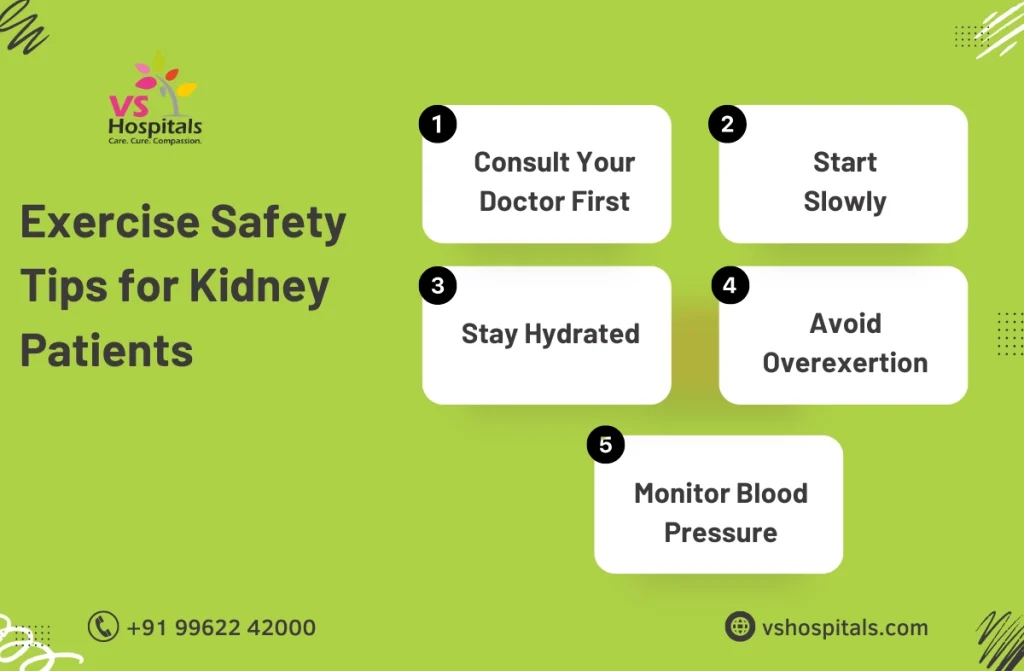Best exercises for kidney health are essential for maintaining optimal kidney function and overall well-being. Regular physical activity supports healthy blood pressure, improves circulation, and aids in managing weight—factors that significantly impact kidney health. Engaging in the right types of exercises can enhance the kidneys’ ability to filter waste efficiently, which is vital for long-term wellness. With a simple routine, you can take effective steps to protect and strengthen your kidneys naturally.
Benefits of Exercising for Kidney Health
Engaging in regular physical activity offers numerous benefits for kidney health. Incorporating the best exercises for kidney health into your routine can:
- Enhance blood circulation, ensuring kidneys receive adequate oxygen and nutrients.
- Regulate blood pressure, reducing the risk of hypertension-related kidney damage.
- Aid in weight management, decreasing the likelihood of obesity—a known risk factor for kidney disease.
- Improve blood sugar control, which is crucial for preventing diabetes-related kidney issues.
- Boost overall cardiovascular health, supporting kidney function.
By focusing on exercise to improve kidney function, you can proactively support your renal health and overall well-being.

Types of Exercises for Kidney Health
Warming Up and Cooling Down
Starting with a warm-up prepares muscles and joints, gradually raising your heart rate and reducing injury risk. A cooldown session, with gentle stretching, helps your body return to a resting state. These steps are particularly beneficial for kidney health, promoting safe exercise without undue strain.
Cardiovascular Exercises
Cardiovascular activities, like walking, swimming, and cycling, enhance heart and kidney health by improving circulation and managing blood pressure. These exercises help reduce the risk of kidney complications without putting stress on the body, making them an ideal choice for those aiming exercise to improve kidney function.
Resistance Training
Light resistance exercises, such as body-weight moves or low-impact weightlifting, strengthen muscles and support metabolism, benefiting kidney health. Unlike high-intensity workouts, these exercises focus on controlled, steady movements that promote strength without straining the best exercise for kidney stone, making them suitable of best exercise for kidney patients.
Stretching
Stretching exercises improve flexibility and mobility, which can help relieve stiffness and improve joint function. Regular stretching reduces muscle tension, lowers stress, and improves blood circulation, indirectly supporting kidney health. It’s especially valuable for the best exercise for kidney patients who benefit from low-impact, supportive movements.
How Often to Exercise for Kidney Health
When aiming for the best exercises for kidney health, consistency is key, but moderation is just as important. Exercising three days a week is generally safe and effective for kidney function without overtaxing the body.
- Frequency: Aim for at least three times a week with light to moderate sessions.
- Duration: Try to exercise for 30 to 45 minutes per session.
- Intensity: Keep workouts low-impact and avoid heavy lifting, especially if you have kidney issues.
By sticking to a consistent schedule, these exercises to improve kidney function can positively impact overall kidney health and wellness. Remember to consult a healthcare provider if you’re starting a new routine.
Tips to Consider When Starting Exercise for Kidney Health
When beginning any new fitness routine, especially for kidney health, it’s crucial to take a gradual approach to avoid strain. Exercise can improve kidney function, but only if done carefully.
- Start Slow: Begin with low-impact exercises like walking or gentle stretching, and increase intensity as your body adapts.
- Stay Hydrated: Drink enough water to stay hydrated, but avoid overdrinking, as too much can burden the kidneys.
- Listen to Your Body: If you feel tired, lightheaded, or notice any discomfort, pause or stop immediately.
Incorporating these tips ensures you’re safely doing the best exercises for kidney health.
Signs That You Should Stop During Exercise
While engaging in the best exercises for kidney health, it’s crucial to listen to your body to prevent overexertion. Overdoing it can lead to complications, especially for those with existing kidney conditions. Be mindful of the following warning signs:
- Dizziness or light-headedness: This may indicate low blood pressure or dehydration.
- Shortness of breath: Difficulty breathing can signal that you’re pushing too hard.
- Chest pain or discomfort: Any chest-related symptoms should be taken seriously.
- Muscle cramps or weakness: These can be signs of electrolyte imbalances.
- Nausea or vomiting: Feeling sick during exercise is a red flag.
- Unusual fatigue: Excessive tiredness may mean your body needs rest.
If you experience any of these symptoms, stop exercising immediately and consult a healthcare professional. Prioritizing safety ensures that your exercise routine remains beneficial for your kidney health.
Conclusion
The best exercises for kidney health can make a significant difference in supporting kidney function and overall well-being. By incorporating gentle activities like walking, stretching, and resistance training, you help boost circulation and reduce stress on your best exercise for kidney stones. Remember to consult with your doctor before starting any new exercise regimen, especially if you have kidney issues. Making these exercises a regular part of your life can contribute to long-term kidney health, supporting a happier, healthier lifestyle.
Read also Hypertensive nephropathy treatment
